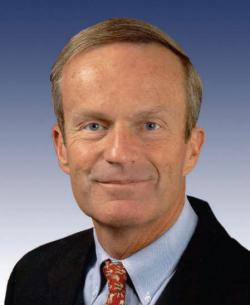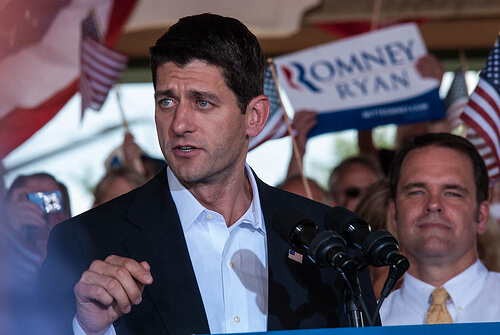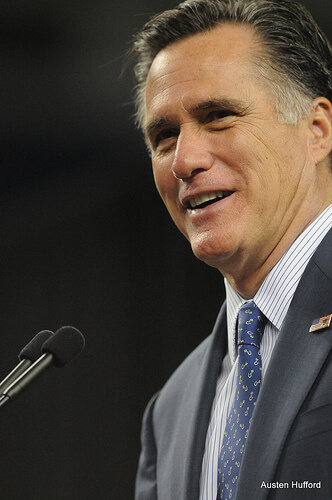In the face of a deepening economic and political crisis, the U.S. political and governing system is deadlocked. We need a new way forward. The old and tired government versus markets debate is just that—old and tired. It’s time for a broader mobilization of America’s civic resources, including the nonprofit sector and especially our colleges and universities.
We see government as a catalyst that stimulates new forms of interaction and partnerships between all sectors of society. Based on our experience at the University of Pennsylvania, we believe government should challenge all institutions of higher education (public and private; community colleges, colleges, and universities) to contribute systematically to improving the quality of life and learning in their local communities.
When called to service (e.g., Peace Corps, AmeriCorps) young people have answered the call. Each year, more than 75,000 citizens serve through AmeriCorps alone. But it is not enough to simply call upon college students to serve. Rather, government should challenge institutions of higher education, as well as students, to make a greater contribution to the public good.
America’s colleges and universities represent immense concentrations of human and economic capital (with nearly four million employees, 20 million enrolled students, $400 billion in endowments, and $1 trillion in annual economic activity). As “anchor institutions,” they have the potential to be sources of stability and permanence in civic partnerships with government and the private sector to revitalize local communities. For colleges and universities to fulfill their great potential and more effectively contribute to positive change in their communities, cities, and metropolitan areas, however, they will have to critically examine and change their organizational cultures and structures and embed civic engagementacross all components of the institution. Through more effectively targeting existing resources, as well as utilizing both modest financial incentives and the bully pulpit, the federal government can stimulate colleges and universities to realize their stated—but not fully realized—mission of service to society.
To realize this potential, we recommend a five-part strategy:
First, Congress should create a new federal commission—comprised of local, state, and national government officials along with leaders from the private sector and higher education—to forge civic partnerships with the nation’s institutions of higher education;
Second, the commission should develop innovative strategies for integrating federal programs and funding streams, as well as aligning federal efforts with these new local civic partnerships that involve colleges and universities;
Third, the commission should promote regional consortia of higher educational institutions to significantly and effectively improve schooling and community life;
Fourth, the federal government should create prestigious Presidential Awards for outstanding Higher Education-Civic Partnerships, and;
Fifth, government should provide support to colleges and universities based on the “Noah Principle”—funding given only for building arks (producing real change), not for predicting rain (describing the problems that exist and will develop if actions are not taken).
Download the memo.



 It’s a rare event when a Senate contest affects a presidential campaign—or indeed, an entire election cycle. But for the moment, that’s what seems to have happened in Missouri, thanks to freshly minted GOP nominee Todd Akin’s witless talk about abortion and rape, and his determination (so far) to stay in the race despite threats and importuning from practically the entire Republican Party and conservative movement (with the exception of a few Christian Right colleagues). Most immediately, Akin’s big mistake has demolished what Republicans thought to be their most promising Senate takeover opportunity this year. Shortly after his primary win over two other major conservative opponents earlier this month, Akin, long considered the weakest of the available candidates, had already opened up a big lead over Sen. Claire McCaskill, and was beginning to consolidate conservative support very rapidly. Now a new
It’s a rare event when a Senate contest affects a presidential campaign—or indeed, an entire election cycle. But for the moment, that’s what seems to have happened in Missouri, thanks to freshly minted GOP nominee Todd Akin’s witless talk about abortion and rape, and his determination (so far) to stay in the race despite threats and importuning from practically the entire Republican Party and conservative movement (with the exception of a few Christian Right colleagues). Most immediately, Akin’s big mistake has demolished what Republicans thought to be their most promising Senate takeover opportunity this year. Shortly after his primary win over two other major conservative opponents earlier this month, Akin, long considered the weakest of the available candidates, had already opened up a big lead over Sen. Claire McCaskill, and was beginning to consolidate conservative support very rapidly. Now a new  Without question, the big election-related event of the last week was the surprising announcement—both its content and its timing, before the Summer Olympics had ended—of Paul Ryan as Mitt Romney’s running-mate. I cannot recall any such event that (a) had so pervasive an immediate impact on the party in question’s general election strategy, and (b) was welcomed with such joy by activists in both parties.
Without question, the big election-related event of the last week was the surprising announcement—both its content and its timing, before the Summer Olympics had ended—of Paul Ryan as Mitt Romney’s running-mate. I cannot recall any such event that (a) had so pervasive an immediate impact on the party in question’s general election strategy, and (b) was welcomed with such joy by activists in both parties.
 PPI’s Will Marshall, with years of experience in welfare reform during the Clinton years, criticized the false attacks by the Romney campaign on the Obama administration’s so called “dismantling” of work requirements to receive welfare. In his article in the Daily Beast, Marshall explains how Romney’s cynical politics are “simply false.”
PPI’s Will Marshall, with years of experience in welfare reform during the Clinton years, criticized the false attacks by the Romney campaign on the Obama administration’s so called “dismantling” of work requirements to receive welfare. In his article in the Daily Beast, Marshall explains how Romney’s cynical politics are “simply false.” If U.S. conservatives have made any useful contribution to anti-poverty policy, it’s driving home this crucial point: family structure matters. The whole vicious cycle of intergenerational poverty usually begins with teen pregnancy and unwed births.
If U.S. conservatives have made any useful contribution to anti-poverty policy, it’s driving home this crucial point: family structure matters. The whole vicious cycle of intergenerational poverty usually begins with teen pregnancy and unwed births.

 PPI Senior Fellow Anne Kim writes for The Hill on the record number of women running for Congress and their potential impact on Capitol Hill:
PPI Senior Fellow Anne Kim writes for The Hill on the record number of women running for Congress and their potential impact on Capitol Hill: PPI President Will Marshal explains why Bill Clinton’s contributions to restoring the language of civic obligation are so frequently overlooked over at
PPI President Will Marshal explains why Bill Clinton’s contributions to restoring the language of civic obligation are so frequently overlooked over at  Anne Kim, PPI Managing Director of Policy and Strategy, explains how online petitions distract Congress from real issues over at
Anne Kim, PPI Managing Director of Policy and Strategy, explains how online petitions distract Congress from real issues over at